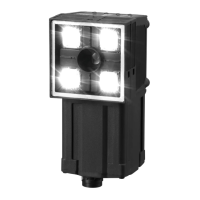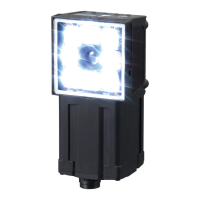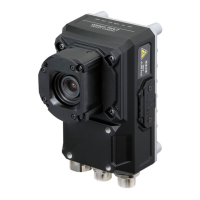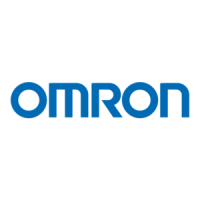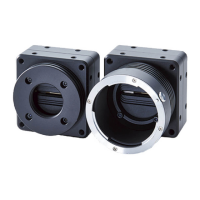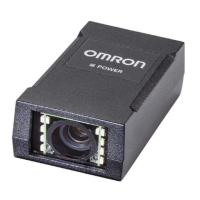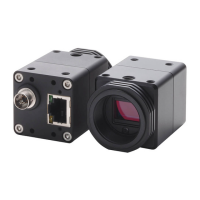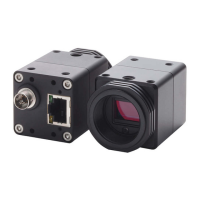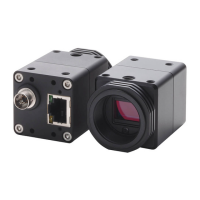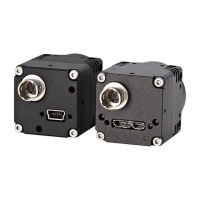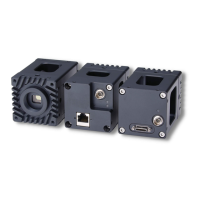Do you have a question about the Omron FQ2-S4 and is the answer not in the manual?
Overview of the FQ2-S4 series vision sensors, including models, features, and capabilities for inspections and measurements.
Describes the basic flow of the measurement process, from trigger input to logging.
Explains the initial startup display and the elements of the Setup and Run modes.
Illustrates the overall operational flow from connections and wiring to setup and operation.
Guidelines for safe installation in various environments, avoiding hazardous conditions.
Safety precautions for power supply voltage, wiring, and connections to prevent malfunctions.
Safety precautions related to the battery, including handling, temperature, and disposal.
Safety precautions for using the AC adapter, including handling and electrical shock prevention.
Precautions for handling the product, including connector covers, lens caps, and waterproof sheets.
Information on compliance with EC directives and EN standards for the product.
Guidelines for selecting an appropriate installation site to prevent failure and malfunctions.
Precautions for power supply, connections, and wiring to ensure correct use and prevent damage.
Precautions for using and charging the battery, including handling and potential hazards.
Precautions for using the AC adapter, including handling and potential hazards.
Guidelines for cleaning the Sensor and Touch Finder, and handling dust particles.
Procedure for selecting a Sensor when multiple sensors are connected to a Touch Finder or computer.
Details on setting image conditions for inspections, including focus, brightness, and timing.
Instructions on adjusting image quality, including focus, brightness, and color balance.
Methods for adjusting image capture timing, including trigger delay and external lighting.
Techniques for adjusting captured images, including filtering and position compensation.
Guide to selecting appropriate inspection items based on measurement object characteristics.
Basic steps for setting up inspection items, including configuration, teaching, and parameter adjustment.
Procedures for adding, modifying, and deleting inspection items for setup.
Details on character recognition setup, including teaching and verification conditions.
Instructions for reading and verifying barcodes, including setup and teaching procedures.
Procedures for reading and verifying 2D codes, including setup and teaching.
Instructions for reading DPM (direct part marking) 2D codes, including setup and teaching.
Guidance on using the Search Inspection Item for shape or presence detection.
Instructions for using the Shape Search II Inspection Item for robust shape detection.
Details on using the Sensitive Search Inspection Item for detecting fine details.
Procedures for inspecting edge positions and adjusting detection conditions.
Instructions for measuring edge width and adjusting related parameters.
Guidance on inspecting edge pitch, including detection conditions and parameters.
Procedures for inspecting color data, including setup and judgement parameters.
Instructions for measuring sizes and inspecting areas based on color.
Guidance on inspecting labels using color extraction and sorting.
How to use inspection item data for calculations and set judgement parameters.
How to perform test measurements with samples or saved images to verify settings.
Techniques to reduce measurement takt time, including image input speed.
Methods for adjusting judgement parameters while looking at measurement results or automatically.
How to check individual judgement results for all inspection items in a list.
Procedure for explicitly saving settings to the Sensor's memory to prevent data loss.
Steps to change from Setup Mode to Run Mode and begin actual measurements.
Explanation of the six types of displays available in Run Mode for viewing results.
How to check measurement histories using the trend monitor and histograms.
Enables adjusting judgement parameters while measurements are being performed to eliminate downtime.
How to register inspection items as scenes and change line processes by selecting a scene.
Process of converting Camera coordinates into actual coordinates for accurate measurements.
Features to make the Sensor easier to use and the display clearer, like image zoom and live/frozen images.
Procedure to check if the I/O connections are working normally.
Methods for connecting multiple sensors to one Touch Finder or computer.
Describes the two ways to log data: recent results logging and file logging.
Instructions on how to back up and restore sensor settings using an SD card or external memory.
Information on SD card operations, including inserting/removing cards and formatting.
Describes functions for convenient operation, such as setting passwords and capturing images.
Details functions useful for setting up inspection items, such as using stored images.
Configures the retry function for scanning until the entire code is successfully scanned.
Describes system settings like lighting control, display language, and time settings.
Describes basic connections and signal flow with external devices using parallel communication.
How to use the Parallel Interface Sensor Data Unit for enhanced parallel output and control.
Overview of protocols for data transfer through Ethernet using the FQ2.
Details on using EtherNet/IP for tag data links, command/response, and data output.
Information on using PLC Link for communication between PLC and Vision Sensor.
Using TCP no-protocol communications for control and data output between devices.
Using FINS/TCP commands for control and data transfer via Ethernet.
Overview of connecting the RS-232C Interface Sensor Data Unit to the FQ2.
Using no-protocol communications with RS-232C for control and data output.
Lists and explains error histories stored in the Sensor, Touch Finder, and PC Tool.
Details error messages that appear on the display and potential hardware faults.
Provides common problems and their solutions for basic troubleshooting.
Detailed tables of menu commands, descriptions, setting ranges, and references.
Lists and describes external reference parameters for various inspection items.
Provides detailed specifications and physical dimensions for the Sensor and Touch Finder.
Instructions for updating the software for the PC Tool, Touch Finder, and Sensor.
Guidance on connecting older Touch Finder models to the FQ2-S Sensor and updating software.
Information on LED devices, class classification, and necessary safety preventive measures.
Summary of safety requirements for manufacturers and users based on regulations.
Technical details on EtherNet/IP communications, including objects, services, and connections.
| Brand | Omron |
|---|---|
| Model | FQ2-S4 |
| Category | Digital Camera |
| Language | English |
